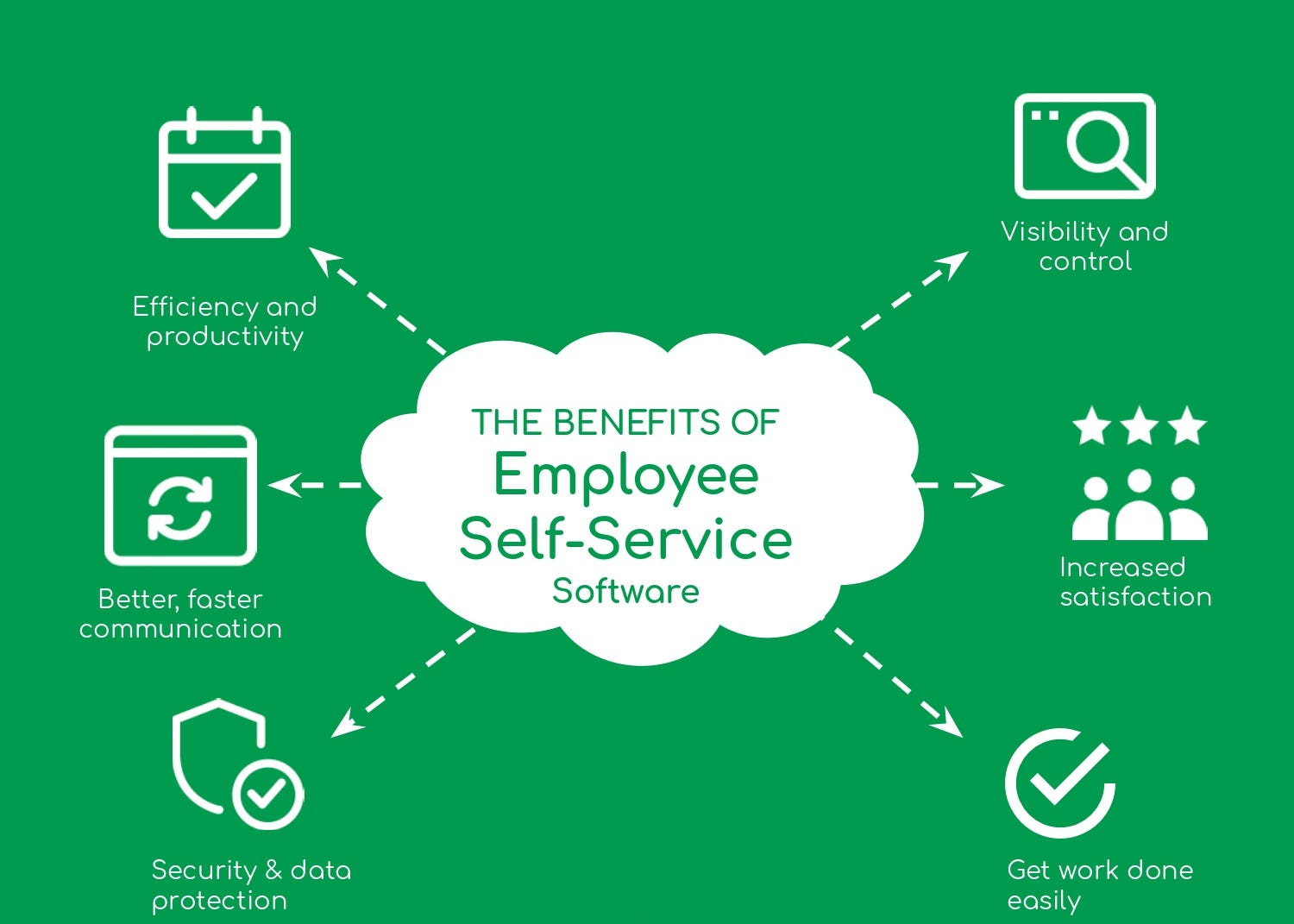Employee self-service software allows employees to manage and handle a variety of human resources-related tasks on their own. These tools can be standalone or integrated with other HR apps and platforms. Although no ESS portal can replace expert HR professionals, smart ESS software frees HR staffers from routine tasks and gives employees more direct control over their information.
Increased Employee Engagement
Employee self-service software allows team members to handle human resources and information technology (IT) tasks independently, typically through a single online portal or mobile app that uses the employee’s phone number as a user ID. It helps them handle everything from updating personal information, logging vacation and sick days, and managing their health insurance options. As a result, an employee self service portal helps companies increase employee engagement by empowering and supporting them. It also bridges the gap between HR and employees and encourages both sides to communicate freely.
Moreover, ESS is a bona fide time-saving juggernaut for companies that use it well. Rather than waste hours responding to low-value queries from employees over the phone or in an email, managers can save time by simply accessing the information they need through the self-service portal.
Additionally, if your company uses an ESS that features social collaboration tools, like community groups and peer recognition, this can help your teams connect. This can boost morale and further engage your workforce, especially in remote locations.
Increased Employee Satisfaction
Employees who feel trusted to manage their HR information without needing a manager’s help are more satisfied at work. This is especially true if the ESS software is easy to use and doesn’t require a lot of time commitment from employees. Modern HR departments are stretched thin with administrative tasks and people management duties, so implementing an ESS portal allows them to focus on their core responsibilities while allowing employees to manage some of their data. This saves time and increases data accuracy while empowering employees. Moreover, the ESS portal can streamline processes like open enrollment, saving labor time for managers and employees while eliminating errors from manual processing. Some ESS systems also allow supervisors and managers to communicate with their hourly workers directly on the platform, which reduces back-and-forth communication and can boost engagement.
Additionally, many ESS systems offer options for employees to complete wellness surveys on their own time rather than having to fit them into a busy schedule. This gives employees control over their health and well-being while providing managers valuable insight into employee perceptions of the company culture.
Increased Productivity
Employee self-service portals enable employees to access company information on their own. This removes some administrative burden from HR and managers, freeing their time to focus on more mission-driven initiatives. In addition, ESS can improve communication in fast-paced work environments. For hourly employees, ESS makes it easy for them to communicate with management and other coworkers. Whether it’s to request time off or discuss a scheduling issue, the back-and-forth process can be simplified with an ESS solution.
Similarly, it allows them to update their personal information with a click of a button and print out their paystubs, freeing up valuable working time. Employees can also browse open positions and pursue career advancement through a self-service portal. This helps increase productivity and engagement by allowing employees to explore more job-related interests. Employees can also connect with managers more easily by commenting on announcements or forum posts and being sent notifications directly to their phones or computers. This enables companies to gain valuable insights from frontline workers that may otherwise go unheard.
Increased Employee Retention
When employees feel empowered to take on certain HR responsibilities, they also tend to think that the company trusts them enough to allow them to do so. This heightened sense of connection within the workplace leads to higher retention levels. Besides improving the overall work experience, self-service features save time for managers. For example, if an employee wants to switch shifts or submit a request for PTO, they can do this independently through the portal. This reduces back-and-forth communication with HR and gives the manager more time to focus on other projects.
Additionally, if your company offers online training programs or insurance benefits, employees can log on to the portal to access those documents or submit their enrollment requests. This can save managers time and headaches and help cut printing and manual paperwork costs. Finally, an ESS portal that is easy to use on a mobile device will give your team the freedom and convenience they need to manage their time and stay connected at all times.
Increased Customer Satisfaction
In addition to saving time for HR administrators, self-service portals help employees feel more connected to their organizations. This is because it eliminates the middleman that can get in the way of processing vital information, like payroll or emergency contact updates. Having all this data in one, easy-to-use system helps employees feel more at home with their workplaces and, possibly, happier in their jobs.
Typically, self-service systems can provide the information employees need in just a few clicks or taps. For example, staff can see their schedules in advance, submit leave requests and pick up shifts through self-service without contacting a human resources team member for assistance. Using self-service software also decreases job logging times by providing a simple way for engineers to log their work and faults online. It can even pre-populate jobs with relevant information (staff information, location, and mark type). This improves customer satisfaction and boosts morale. It can also lower support costs by reducing calls and emails to the call center.

